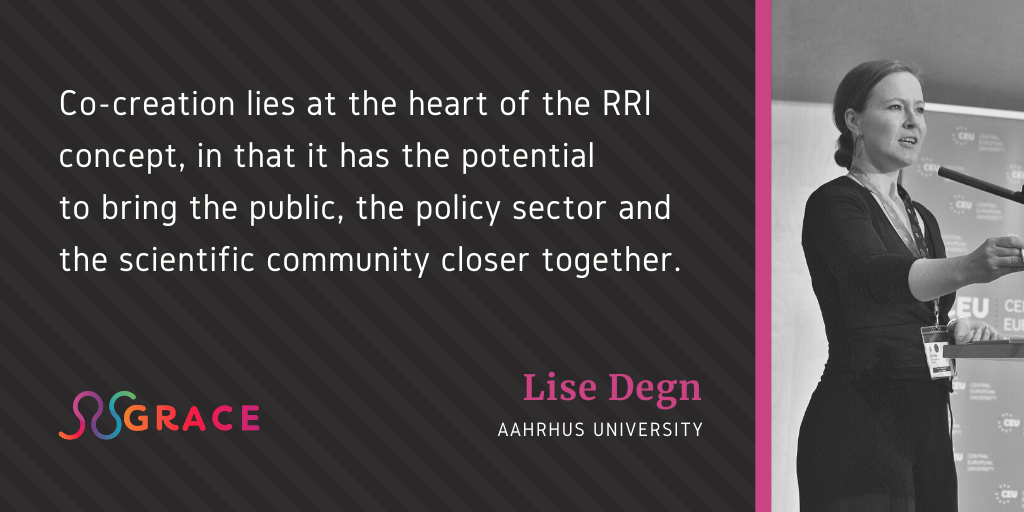
What is the role of mutual learning and co-creation in promoting the adoption of RRI principles?
Mutual learning and co-creation are fundamental principles in the GRACE project and a core value of RRI in general. Mutual learning on the overall level has aided – and continues to support – the countries and institutions attempting to adopt RRI principles by creating a common RRI language and by allowing each stakeholder to benefit from others’ experience. Co-creation as a guiding principle of RRI is not only embedded in several RRI keys, like public engagement and open access but also lies at the heart of the RRI concept, in that it has the potential to bring the public, the policy sector and the scientific community closer together.
In the GRACE project, mutual learning and co-creation have two pivotal functions; internal and external. The internal role of mutual learning and co-creation is to ensure that GRACE partners learn from each other’s processes and in this way benefit from lessons learned across countries and institutional borders. The external role of mutual learning and co-creation is to ensure institutional ownership to the RRI initiatives, which are set in motion as part of the project. Co-creation processes allow partners to bring concerns and possible obstacles to implementation to the surface and address them up front, by co-creating the activities with various stakeholders, e.g. colleagues, management, students etc. In this way, GRACE project partners actively seek to enhance mutual learning and co-creation both within the project and in the institutional contexts where the RRI Grounding Actions are carried out.
Lise Degn
Aarhaus University


